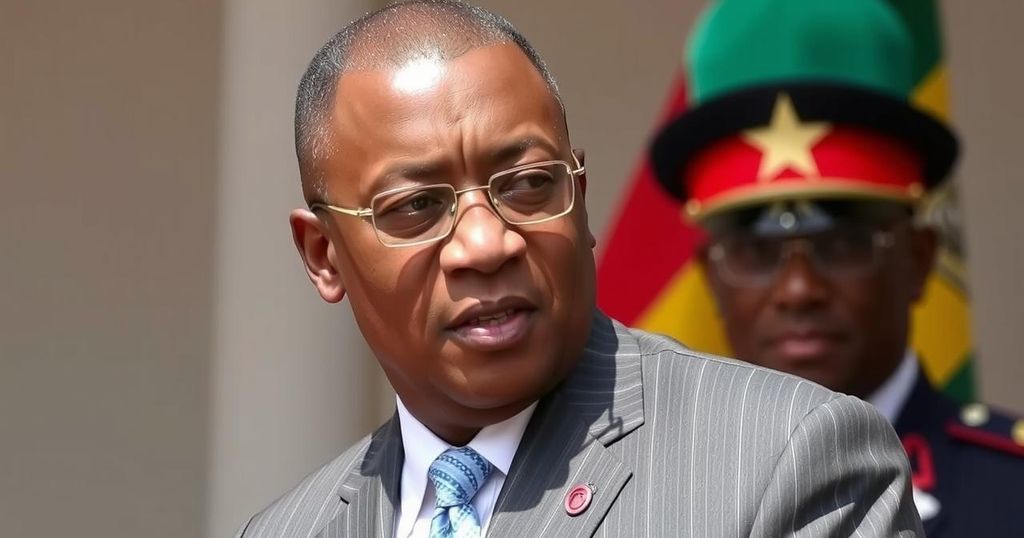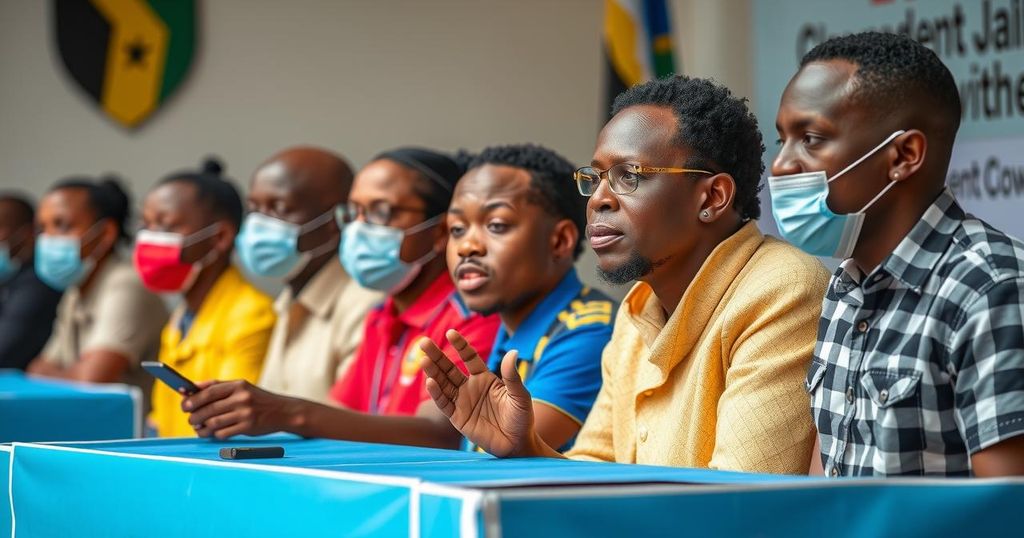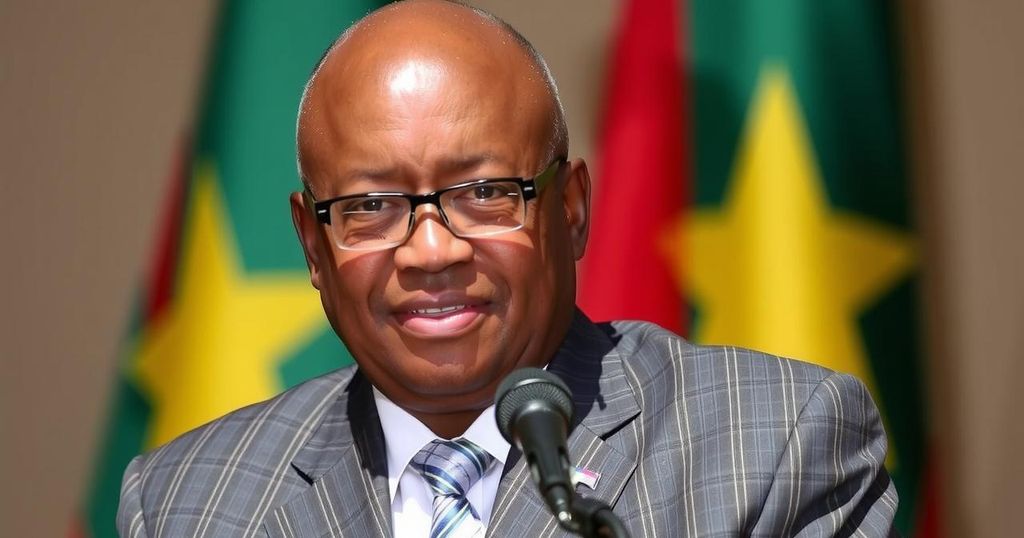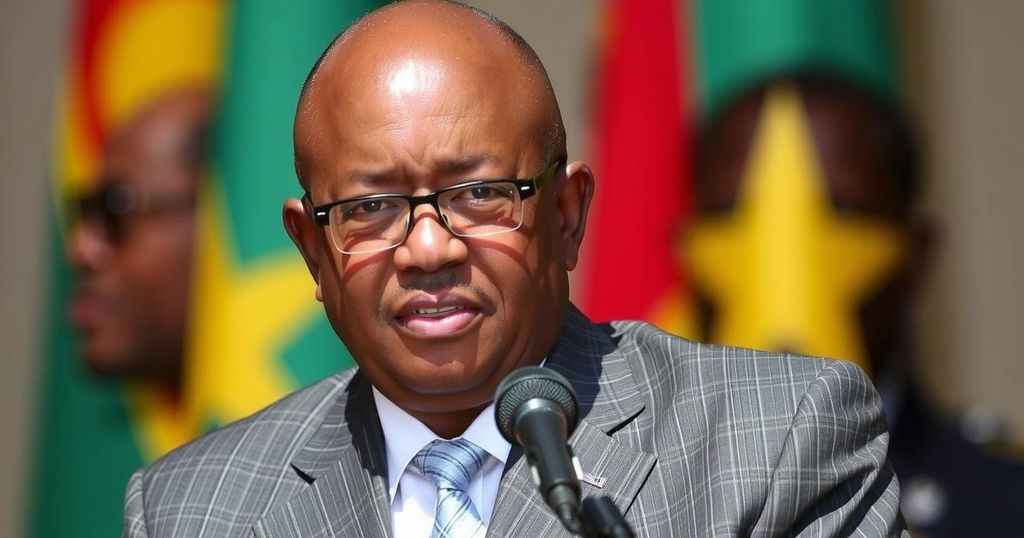Mozambique Faces Turmoil as President-elect Daniel Chapo is Inaugurated Amid Protests
Mozambique’s President-elect Daniel Chapo is set to be inaugurated amid significant unrest following disputed elections, with main opposition leader Venancio Mondlane calling for protests and strikes. With claims of electoral fraud and a resulting death toll exceeding 300 due to police action against demonstrators, the situation remains volatile. Chapo’s government may face challenges ahead as he seeks to maintain stability and engage with opposition figures.
Mozambique is poised for significant unrest following the inauguration of President-elect Daniel Chapo, which is set to take place more than three months after the controversial elections held on October 9. Amid escalating tensions, Chapo’s main opposition leader, Venancio Mondlane, has called for mass protests and a national strike to voice dissatisfaction with the disputed election results. According to civil society organizations, current demonstrations have resulted in over 300 fatalities due to the government’s crackdown on dissenting voices.
Chapo, who will formally assume office on Wednesday, faces immediate challenges as Mondlane seeks to galvanize public support against the new government. “This regime does not want peace… We’ll protest every single day,” Mondlane asserted via social media, indicating his determination to instigate a movement aimed at destabilizing Chapo’s presidency. Meanwhile, Chapo has urged citizens to work together toward national stability, addressing legislators at the national assembly.
International observers have raised concerns over the integrity of the electoral process, with the European Union criticizing the “unjustified alteration of election results.” The inauguration ceremony may witness the absence of foreign dignitaries, reinforcing perceptions of a lack of legitimacy surrounding Chapo’s presidency. Political analysts suggest the degree of unrest moving forward will largely depend on Chapo’s response to the crisis.
While relative calm prevailed during the inauguration of lawmakers earlier this week, violence continues to mar regions of the country. Experts speculate that Chapo may need to include opposition leaders in his government to mitigate growing discontent. Despite ongoing talks with other political leaders, Mondlane remains excluded, yet has expressed willingness to negotiate. He contends that he won the election with 53 percent of the vote, contrary to official reports indicating a 65 percent victory for Chapo.
As Mozambique stands on the brink of potential upheaval, the commitment of both Chapo and Mondlane to dialogue may shape the political landscape and influence the future stability of the nation.
The political climate in Mozambique has grown increasingly tense following the disputed presidential elections held in October 2023. Daniel Chapo of the ruling FRELIMO party, which has maintained power since the country’s independence from Portugal in 1975, was declared the victor amidst allegations of electoral fraud. Venancio Mondlane, his primary opponent and leader of the Podemos party, has rallied citizens to protest the legitimacy of Chapo’s win, claiming that the elections were manipulated. Moreover, the ensuing unrest has resulted in significant loss of life, with government authorities accused of employing brutal tactics to suppress dissent. The international community has expressed concern regarding the fairness of the elections, with several governments opting not to send representatives to Chapo’s inauguration.
The inauguration of President-elect Daniel Chapo underlines a critical juncture for Mozambique, marked by significant political unrest and calls for mass protests led by his main rival, Venancio Mondlane. As the country grapples with the ramifications of a disputed election, the mobilization of civil society and the response of the Chapo administration will be pivotal in determining Mozambique’s trajectory towards stability or further chaos. The political landscape will likely continue to shift as both leaders navigate their roles in securing peace and addressing public grievances.
Original Source: www.france24.com




Post Comment